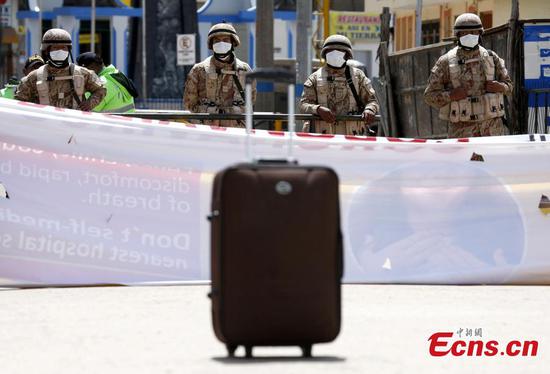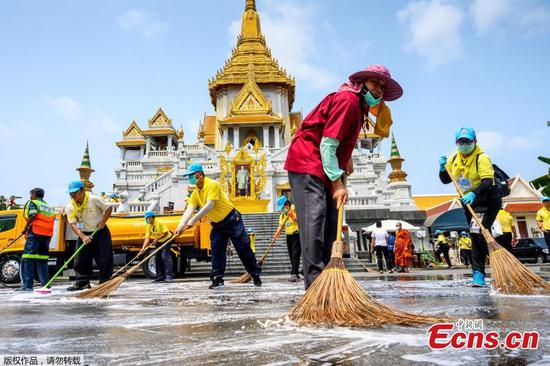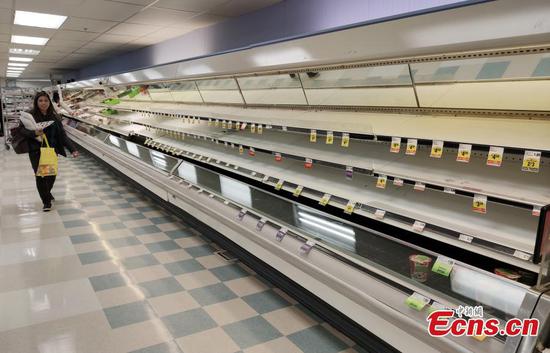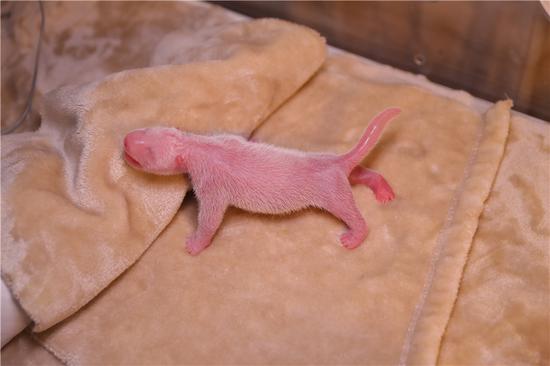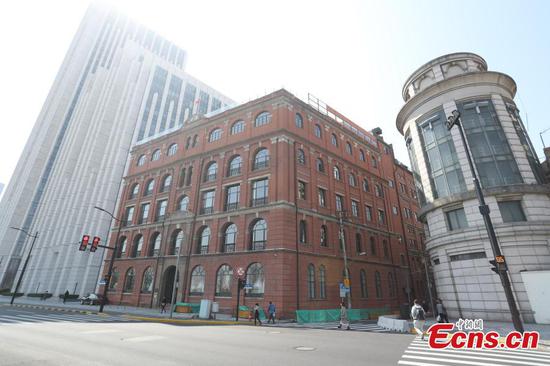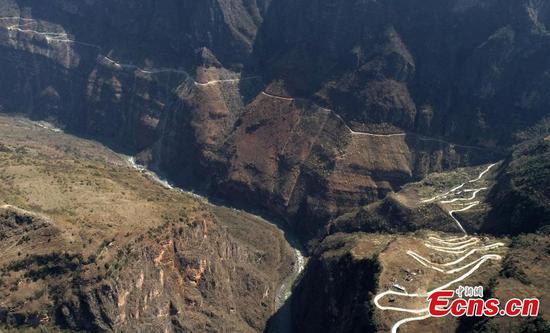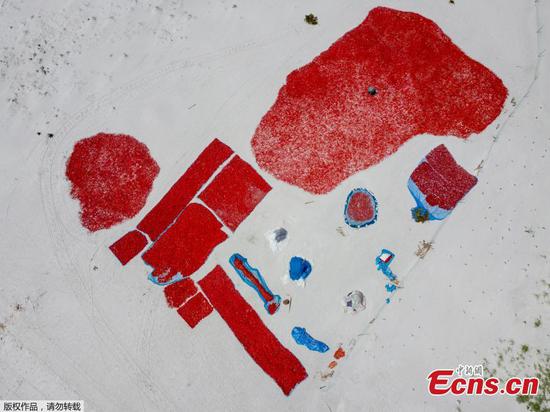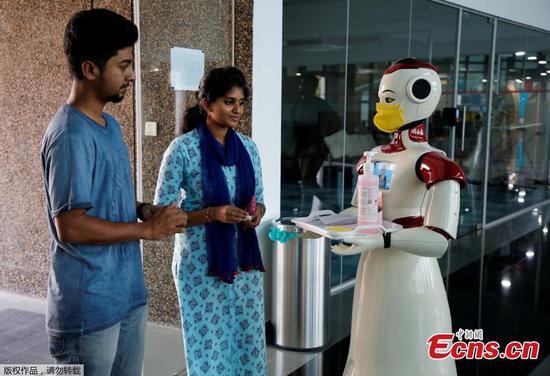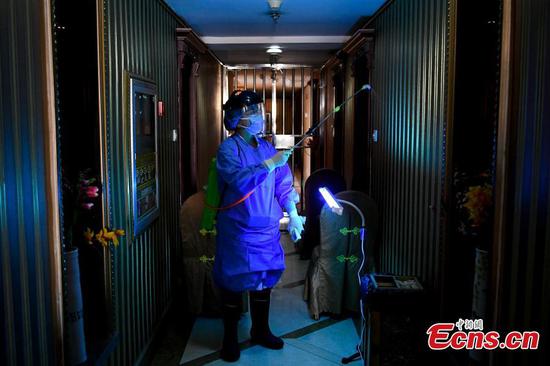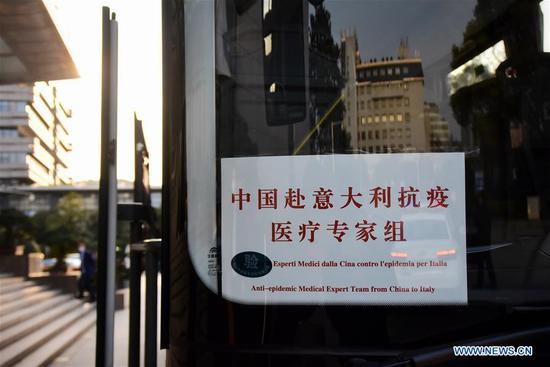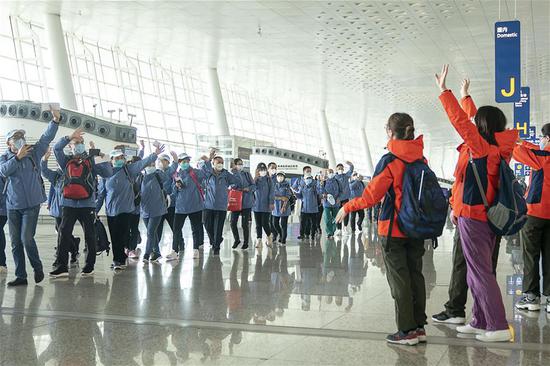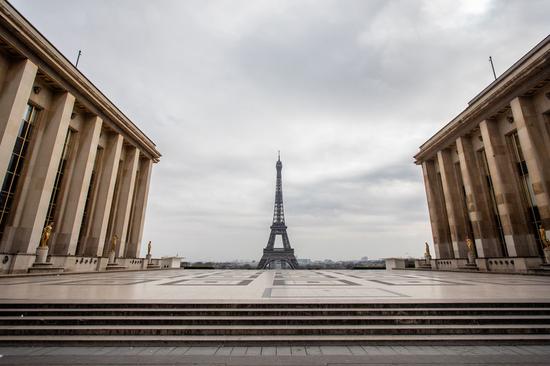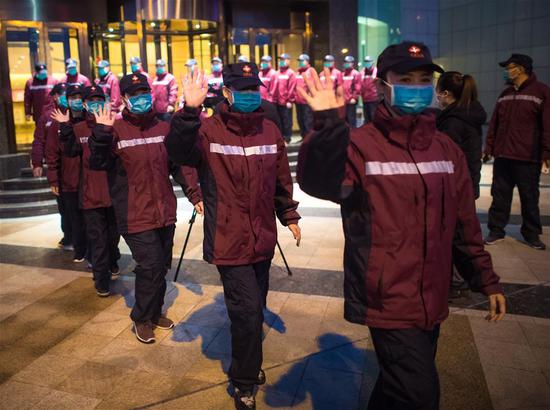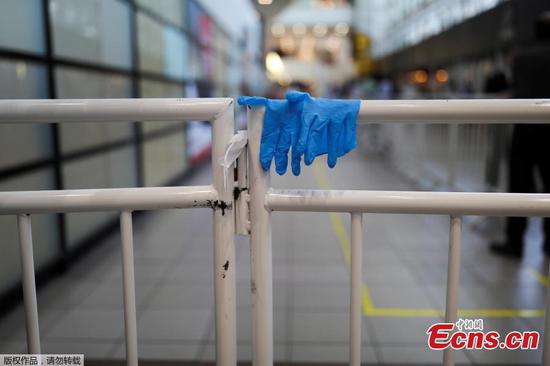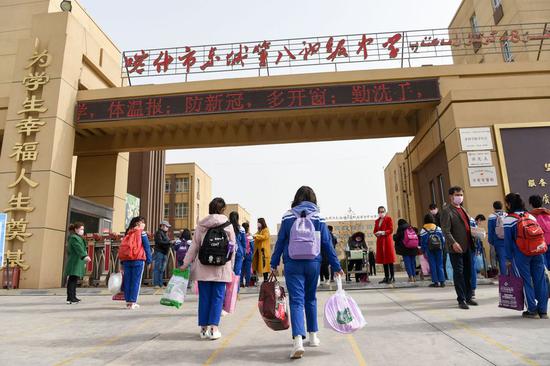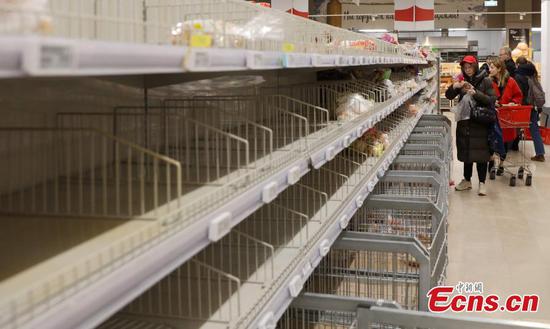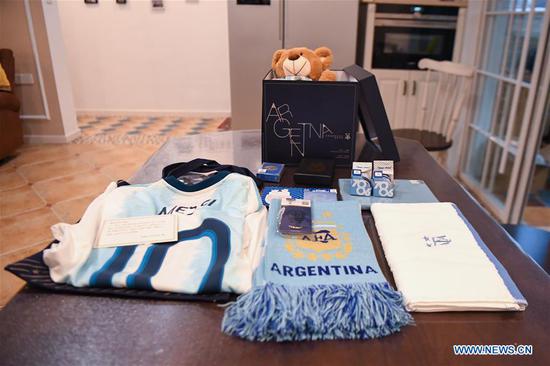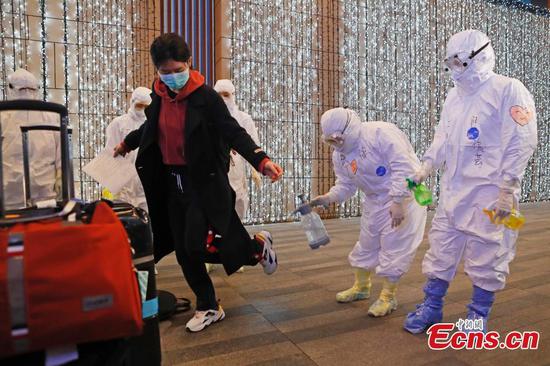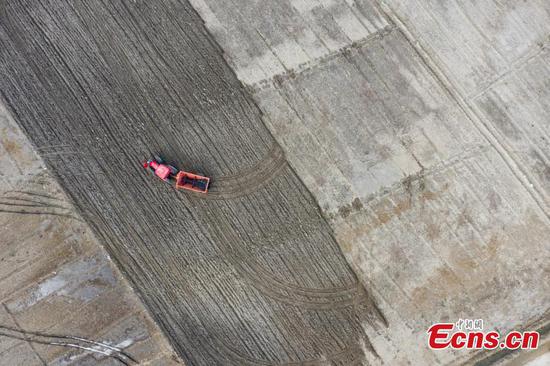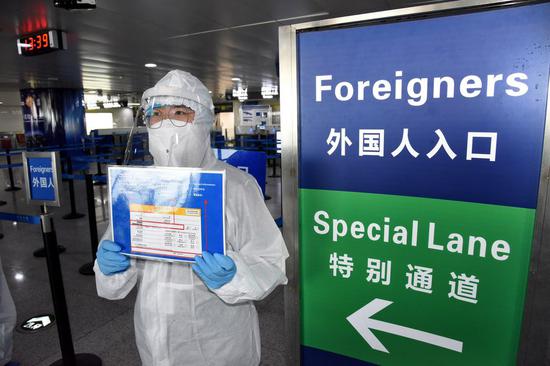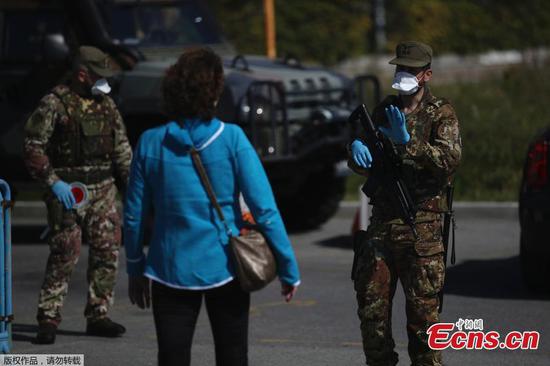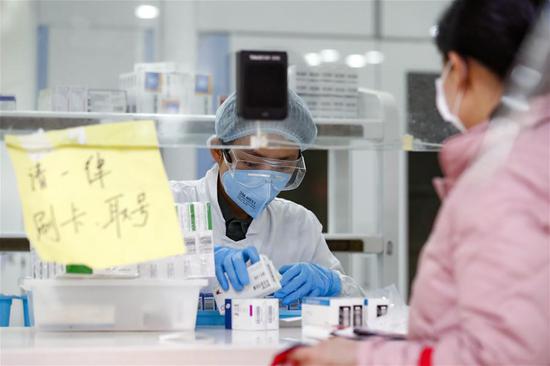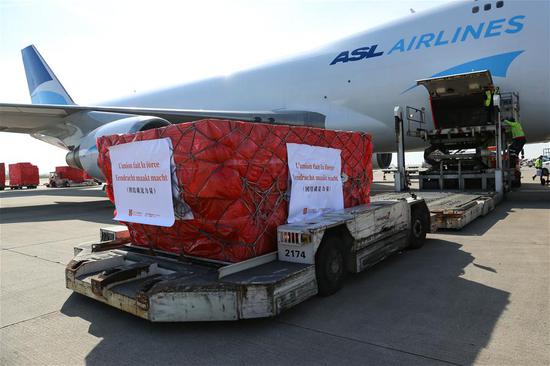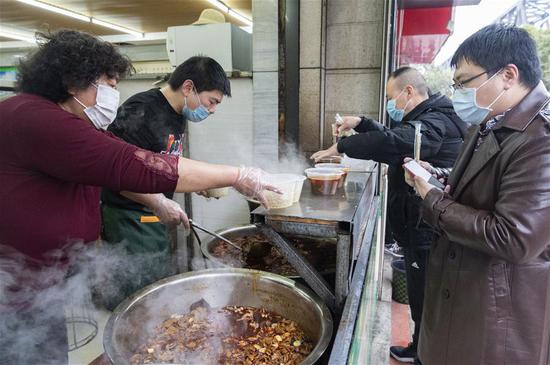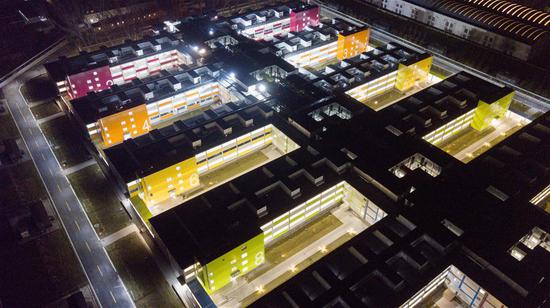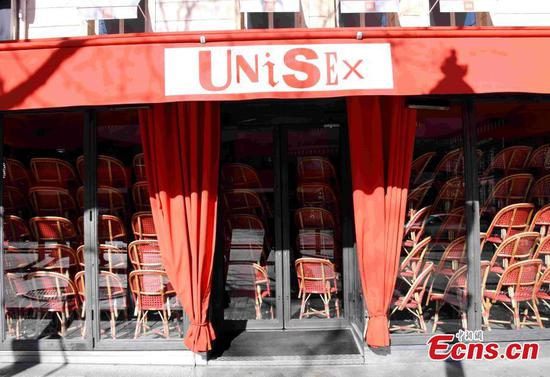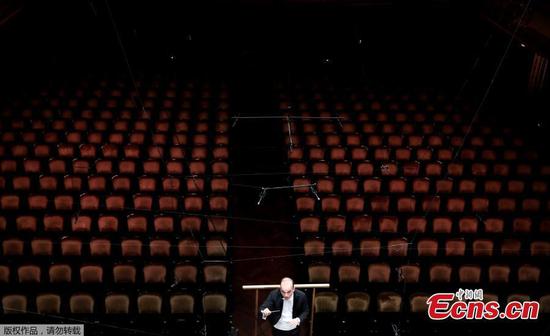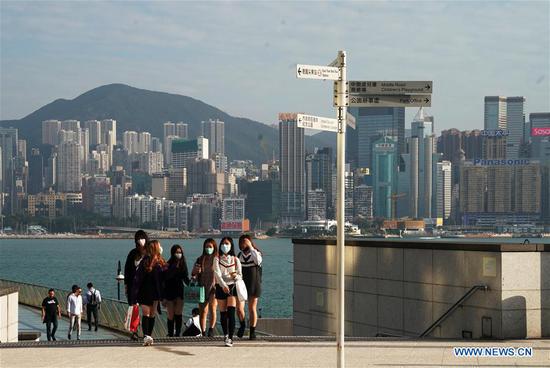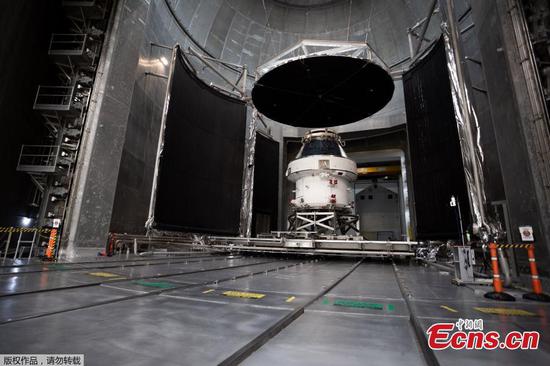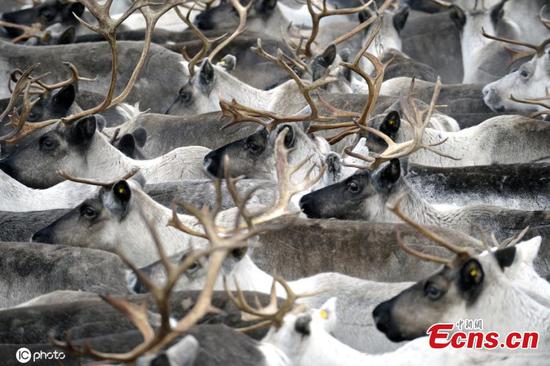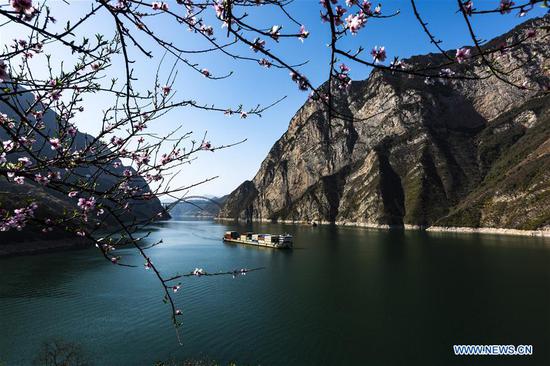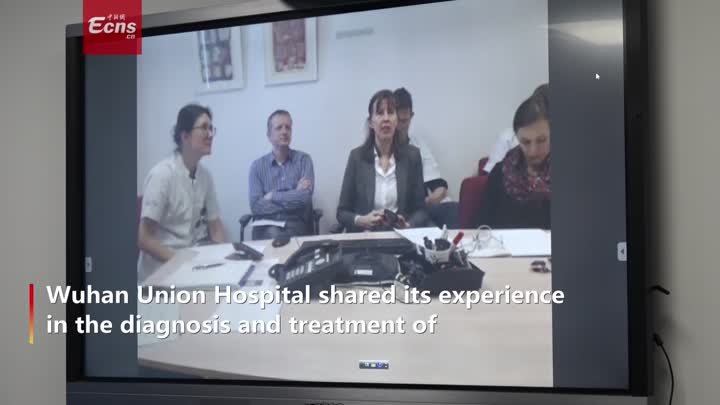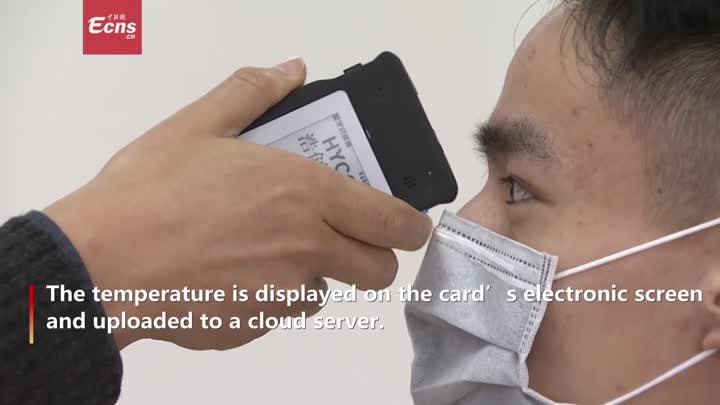UN Secretary-General Antonio Guterres, working with reduced personnel in a lightly staffed headquarters, was checking with chiefs of UN agencies, departments and missions around the world to see how they are handling the coronavirus crisis, his spokesman said on Wednesday.
All staffers were ordered earlier in the week to telecommute.
The resettling of refugees has been suspended because of COVID-19; some 850 million -- roughly half of the global number of students -- are staying away from schools and universities, and the fallout from the pandemic could increase global unemployment by 25 million people, said UN chief's spokesman Stephane Dujarric.
He said the UN Refugee Agency (UNHCR) and the International Organization for Migration (IOM) announced the refugee resettlement suspension because of measures countries are taking to reduce entry into their territories due to COVID-19. This means that travel arrangements for resettling refugees are currently subject to severe disruptions.
"Some countries have also placed a hold on resettlement activities given their public health situation, which impacts their capacity to receive newly resettled refugees," said Dujarric. "The two agencies said that they are also concerned that international travel could increase the exposure of refugees to the virus."
The UN Education, Scientific and Cultural Organization reported more than 850 million children and youth -- roughly half of the world's student population -- are staying away from schools and universities due to the epidemic, he said. Nationwide closures are in force in 102 countries and local shutdowns in 11 others with further increases expected.
Countries around the world are racing to fill the void with distance learning solutions. But the uncertain duration of the closures adds further complications to their efforts, Dujarric said. A coalition of government and the private sector is being put together to help deploy remote learning systems.
The executive director of the UN Children's Fund (UNICEF), Henrietta Fore, said the agency is working to help prevent the spread of the virus among communities by providing hygiene and medical kits to schools and health clinics and by mitigating the impact of the outbreak on children's access to health, education and social services.
"Our life-saving work to provide children with health, education, nutrition and protection has never been more critical," said Fore in a statement. "With millions of children uprooted, affected by wars, dying from preventable causes, out of school, or missing out on essential vaccines, the need for support has never been greater."
The International Labour Organization (ILO), which reported the crisis could increase global unemployment by almost 25 million people, said that an internationally coordinated reaction similar to the 2008-2009 global financial crisis response would significantly lower the impact on global unemployment.
The ILO calls for urgent, large-scale and coordinated measures across three pillars: protecting workers in the workplace, stimulating the economy and employment, and supporting jobs and incomes, said Dujarric.
Turning to Africa, the spokesman said the UN peacekeeping mission in Mali, at the request of the government, will put all mission staff coming back from a country impacted by COVID-19 into self-isolation for 14 days. Meetings were being limited.
In Sudan, the UN Humanitarian Country Team has finalized a COVID-19 response plan in support of the government. UNICEF has mobilized 370,000 U.S. dollars for infection prevention and control supplies for use at points of entries in Sudan as well as in ambulances, he said.
The UN Population Fund (UNFPA) is working with temporary quarantine teams in Sudan to ensure women and girls of reproductive age that are admitted receive so-called dignity kits, which include items to ensure basic hygiene and comfort, Dujarric said.
In South America, UN entities in Peru are working with the government to minimize the social and economic impacts of the outbreak. The Pan-American Health Organization and the World Health Organization have been working on public health system preparedness and community awareness with the government.
Meanwhile, the spokesman said the ILO has also been working with other ministries to protect people's rights.
In the Venezuela situation, he said the UNHCR and the IOM are working with government counterparts to support migrants and refugees who are coming from Venezuela to access social programs that may be limited, he said, adding that UNFPA is also working on reproductive health services in the region.
In Uzbekistan, preparedness is at full speed with the UN team's collaboration with government counterparts, Dujarric said. Members of the UN staff have been trained for emergency communications with the Ministry of Health and various other government agencies.
The training includes monitoring of public opinion and countering false information, he said. This complements a UN-backed campaign with the government on COVID-19 in Uzbek and Russia.
Although the secretary-general was in his office, a lot of senior UN officials were telecommuting, including Undersecretary-General for Political Affairs Rosemary DiCarlo, Undersecretary-General for Humanitarian Affairs Mark Lowcock, said Dujarric.
The spokesman himself conducted the regular daily briefing from his home for the first time. Several correspondents participated via teleconference and had to text their questions in.









